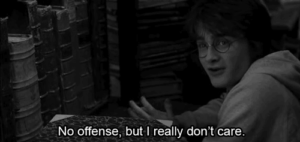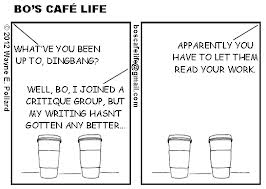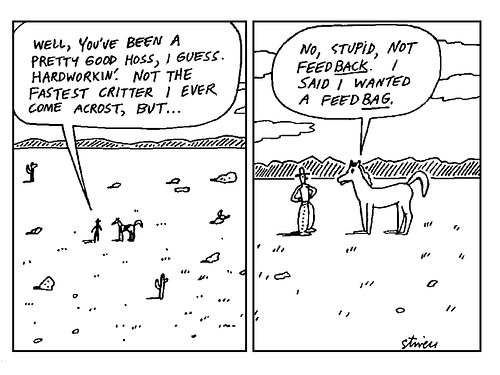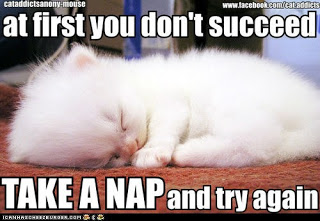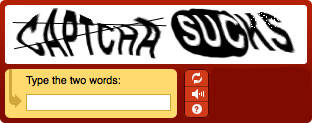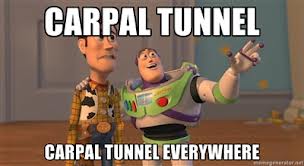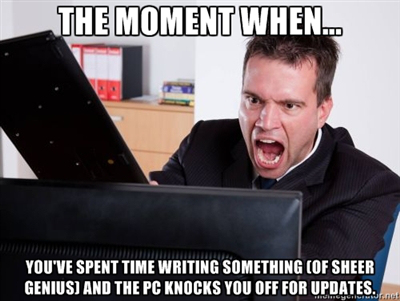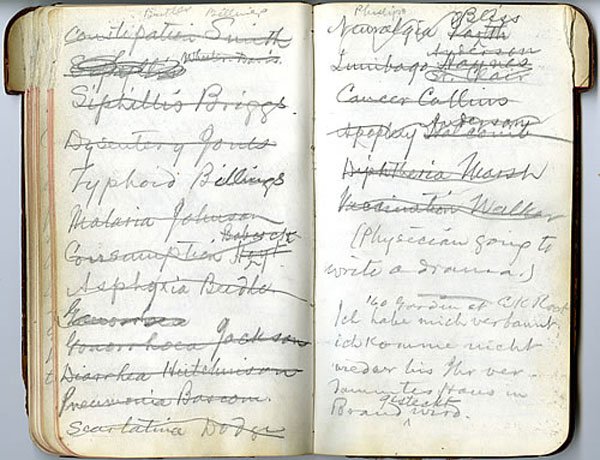A critique group can be a gathering of kindred spirits who comb through each other's manuscripts in the common spirit of raising the quality of their work. These groups sometimes exist for decades and are the source of support, hilarity, Kleenex, champagne and inspiration.
Or it can be a group of people who are all secretly thinking of committing murder by paper clip.
There are as many different kinds of critique groups out there as there are writers, so obviously no fast and fast rules can be developed. Except….
1. You must all figure out what the rules and guidelines are for your group. If you haven't had this conversation in a while, bring it up at the next meeting, with gin, if necessary. Make sure that you're all on the same page (ha!) about frequency, location, and duration of meetings, how much time each writer gets, what is an acceptable length of work to submit, should pages be submitted a week in advance or read cold at the meeting, etc.
2. Respect for each writer's work and process must be the highest priority. If you're in a group that feels competitive or nasty, then flee. We already feel insecure about our work. Your critique group should be a place that feels safe, not scary.
I've belonged to four critique groups. I found the first one because of a flyer posted in the library of the local community college. They were nice people, I guess. I was the only one writing for kids and felt a little out of place. There was the guy who was writing science fiction erotica, a man writing a memoir to make make all of his relatives feel rotten about being so mean to him, and a woman writing Regency romaces "with a twist." (I didn't stick around long enough to find out what that was. Sorry.) I attended it twice.
The second group spent about 5% of the meeting on critiquing and the rest of the time complaining about their partners, kids, and therapists. Not for me, thanks.
The third critique group changed my life. I attended it regularly for more than a decade. We met once a month in the public library. The mornings were for reading our selections out loud and getting feedback, then we'd go out to lunch and talk business, moan about the publishing industry, and laugh. A lot. The only reason I stopped attending was that I moved 300 miles away.
I belong to a critique group where I live now, but because of my schedule I only make about half of the meetings. They are very patient with me and I consider myself lucky that they haven't booted me to the curb. It doesn't matter how many books you write, getting the opinions of trusted peers, plus having the chance to analyze the work in progress of other writers is going to make you better.
A question came in on Facebook that fits in well here:
"Say you've gone through major revisions including critique from writing buddies and professionals. You think you might be ready to send to an agent. How do you know and what kind of feedback could help you at this point?"
You don't.
But Time is your friend here, the irritating kind of friend who always flosses and washes her sheets once a week and is almost always right. Take a month. Take three. Seriously. You are not counting on some phantom advance to pay your rent, so you have the luxury of time. And it is a luxury, so bask in it.
There are no do-overs when it comes to submitting manuscripts. You can't fly to New York and bribe the agent's intern to let you crawl through the mail room and steal your manuscript back because after you sent it you realized that the main character's major conflict was the lamest conflict ever.
Make a note on your calendar to read through your manuscript in three months. Do not look at it until then. Start a new book. Learn tatting. Raise goats. Teach yourself particle physics. If – in three months – you read it through and cannot think of how to make it any better, then say a prayer and send it.
Take time before you that leap.
Non-fiction prompt – What are the strengths and weaknesses of your writing? What comes to you naturally and what do you have to work on? Bonus points – take out one of our favorite books and reread it. Highlight or copy out the best passages in the book (setting, pacing, narrative, dialog) that exemplify what you are trying to improve in your own writing.
Fiction prompt – What is the hardest thing for your character to do? Write a scene in which your character sees a minor character, someone younger or more vulnerable, forced to do that Hard Thing. Your character is compelled to take on the task so spare the other person the burden of it. Or maybe not – maybe your character really doesn't have the gumption. How would that play out?
Fifteen minutes spent writing today could change your life.
scribble… scribble… scribble…




